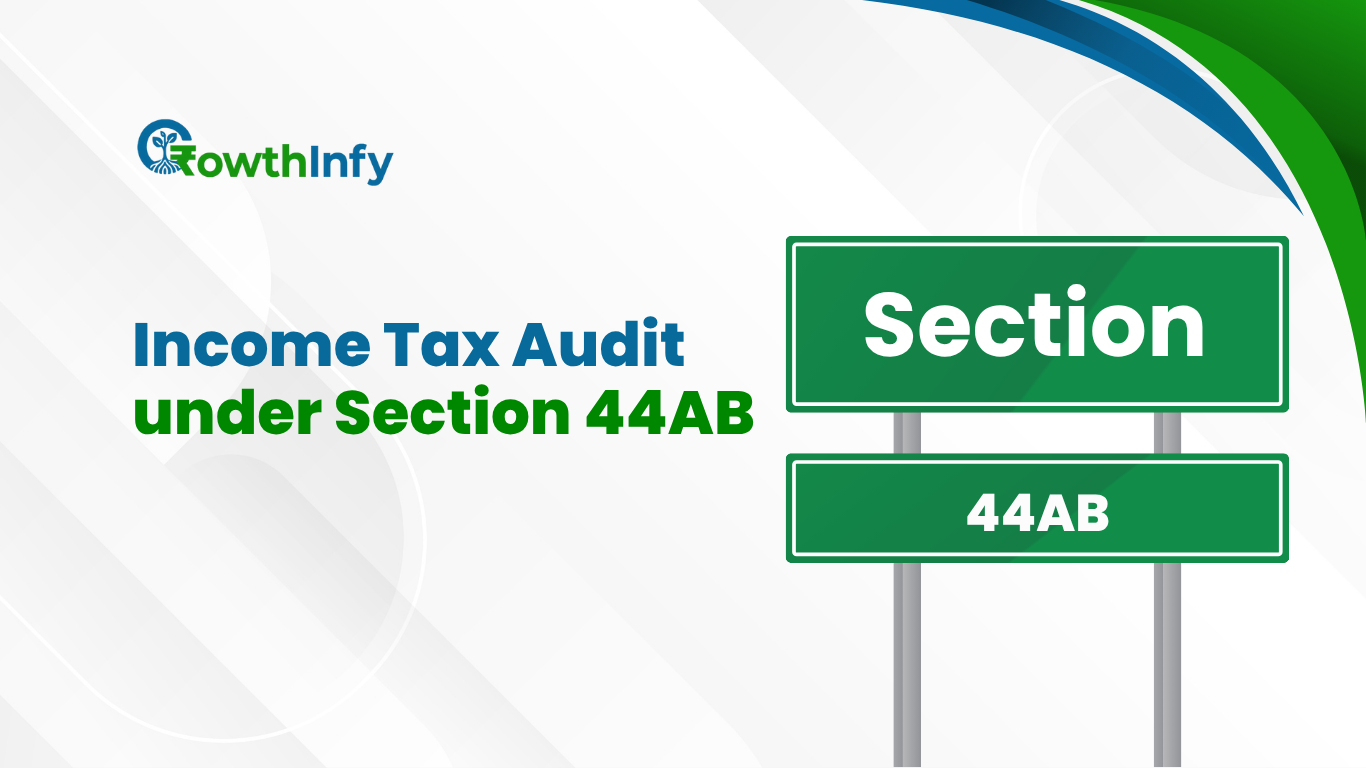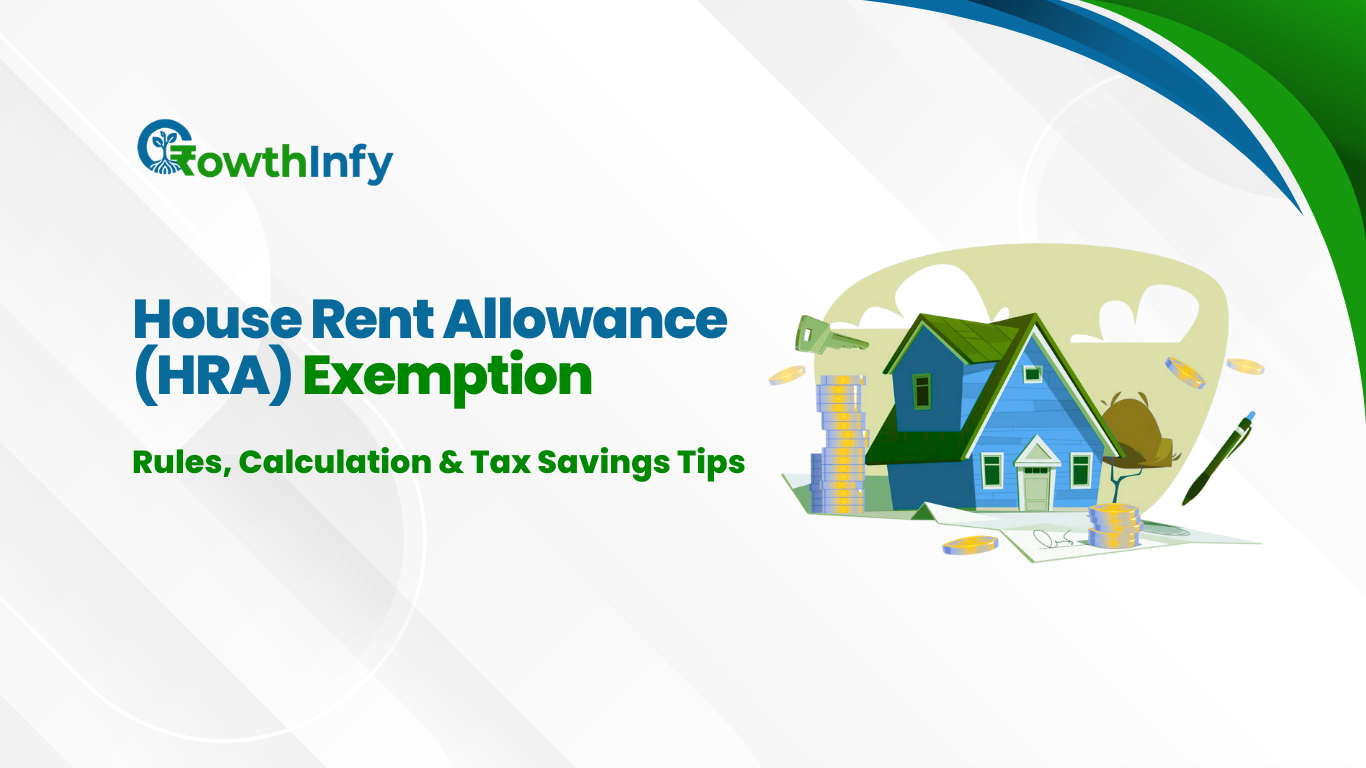Income Tax Audit under Section 44AB: Criteria, Audit Report, and Penalties
Tax audits play an important role in making sure that taxpayers follow India’s tax laws. One significant part of the Income Tax Act, 1961 is Section 44AB. It requires audits for certain taxpayers. This article offers a detailed guide to Section 44AB of the Income Tax Act. It discusses the criteria for audits, what the audit report must include, penalties for not complying, and more. Whether you run a business or work as a professional, understanding Section 44AB of the Income Tax Act is essential for smooth tax compliance.
What is Section 44AB of the Income Tax Act?
Under Section 44AB of the Income Tax Act 1961, a taxpayer must undergo a tax audit if their turnover or gross receipts exceed certain thresholds. This process helps ensure the correct reporting of income and deductions while minimizing the risk of tax evasion. A statutory authority, specifically a Chartered Accountant (CA), conducts the tax audit. The auditor checks to make sure the taxpayer’s financial records, whether for a business or profession, are accurate and comply with the Income Tax Act.
The audit involves reviewing books of accounts, which include the cash book, ledgers, and journals, as well as inspecting bank statements and invoices. The procedure verifies that taxpayers maintain their financial records correctly within the Income Tax Act, 1961 framework and report those records accurately.
Who Needs to Comply with Section 44AB?
The applicability of Section 44AB of the Income Tax Act depends on specific criteria related to turnover, gross receipts, or the taxation scheme chosen by the taxpayer. Below is a detailed breakdown of who must undergo a tax audit:
Category | Threshold for Tax Audit | Conditions |
Business | Turnover exceeds ₹1 crore | Mandatory audit if total sales, turnover, or gross receipts exceed ₹1 crore in a financial year. |
Business (with low cash transactions) | Turnover exceeds ₹10 crore | If cash transactions are ≤5% of total receipts and payments, the threshold increases to ₹10 crore. |
Profession | Gross receipts exceed ₹50 lakh | Professionals like doctors, lawyers, or consultants must audit if gross receipts exceed ₹50 lakh. |
Presumptive Taxation (Section 44AD/44ADA) | Income below prescribed rate | If taxpayers opt for presumptive taxation but declare profits lower than 6-8% (business) or 50% (profession) and their income exceeds the basic exemption limit, an audit is required. |
For taxpayers already audited under other laws (e.g., Companies Act), a separate audit under Section 44AB is not required, provided the existing audit report is submitted with Form 3CA/3CD by the due date.
Tax Audit Report: Forms and Requirements
The tax audit report under Section 44AB of the Income Tax Act 1961 is submitted in various forms according to Rule 6G of the Income Tax Rules. This allows for consistent reporting and compliance. Here’s a brief overview:
- Form 3CA: Used when the taxpayer has had their accounts audited under another statute (e.g., Companies Act). This form indicates that the audit is being conducted under Section 44AB provisions.
- Form 3CB: Used when the taxpayer does not need to have their accounts audited under another statute and must comply with Section 44AB.
- Form 3CD: A detailed statement of particulars submitted with the 3CA or 3CB form, covering deductions, compliance, and financial details.
The Chartered Accountant conducting the audit must hold a Certificate of Practice (COP) as required by Section 288(2). The audit report must be filed electronically, and the taxpayer must approve the audit report on their Income Tax e-filing account.

Due Dates for Filing Tax Audit Reports
Filing the tax audit report on time is critical to avoiding penalties. The tax audit report for Assessment Year (AY) 2025-26 (Financial Year 2024-25) is due on:
- 30th September 2025 for taxpayers under tax audit according to Section 44AB (non-transfer pricing cases).
- 31st October 2025 for taxpayers involved in international or specified domestic transactions that require transfer pricing reports under Section 92E.
The Central Board of Direct Taxes (CBDT) sometimes extends due dates. For AY 2024-25, the due date changed from 30th September 2024 to 7th October 2024. Check for updates on the Income Tax Department website.
For more insights on Advance Tax
Penalties for Non-Compliance with Section 44AB
If a taxpayer doesn’t meet the requirements set by Section 44AB of the Income Tax Act, penalties apply under section 271B. The penalty could be either 0.5% of total sales, turnover, or gross receipts, or ₹1,50,000.
However, no penalty will be imposed if the taxpayer has a valid reason for not complying. Courts and Tribunals have recognized various valid reasons for non-compliance, including:
- Death or physical disability of the responsible person.
- Resignation of the tax auditor causing delays in filing the income tax return.
- Loss of records due to theft, fire, or natural disasters.
- Labor disputes, strikes, or lockouts.
Failure to comply with income tax provisions can also result in the Income Tax Return (ITR) being marked defective, leading to increased scrutiny or even penalties.
Objectives of Tax Audit under Section 44AB
The tax audit under Section 44AB is beneficial for many services that ensure compliance and transparency.
- Accuracy of financial records: Ascertains that the books of accounts maintained are free from discrepancies.
- Tax compliance: Verifies compliance with both the provisions of the Income Tax Act, 1961.
- Prevention of Tax Evasion: Guarantees that errors or fraudulent activities are detected in a timely manner and accurately reported as income.
- Facilitating Revenue Authorities: Allows the Assessing Officer (AO) to conduct its assessment rapidly by relying on the taxpayer’s verified financial records.
Having a tax audit done can help taxpayers mitigate their risks, avoid disputes with tax authorities and secure their financial well-being.

Key Considerations for Taxpayers
To meet the requirements of Section 44AB of the Income Tax Act 1961, taxpayers should:
- Maintain proper records: Keep organized books of accounts, including cash books, ledgers, invoices, and any required records as specified by Section 44AA.
- Appoint a qualified CA: Only a CA with a valid COP can complete the audit.
- Keep turnover limits in mind: Regularly track your turnover or gross receipts to determine if an audit applies.
- Understand presumptive taxation: If opting for Sections 44AD or 44ADA, ensure profits align with the prescribed rates to avoid an audit.
If your turnover is under ₹2 crore and you choose presumptive taxation under Section 44AD, it can aid compliance, provided you declare profit according to section requirements.
Conclusion
Section 44AB of the Income Tax Act is mandatory for businesses and professionals whose turnover or gross receipts exceed set limits. Understanding Section 44AB will help taxpayers ensure audits happen, reports are accurate, and penalties are avoided. Taxpayers should engage a qualified Chartered Accountant and maintain proper record-keeping from the start to facilitate compliance. Staying informed, planning ahead, and consulting tax professionals is key to navigating the complexities of tax audits.




